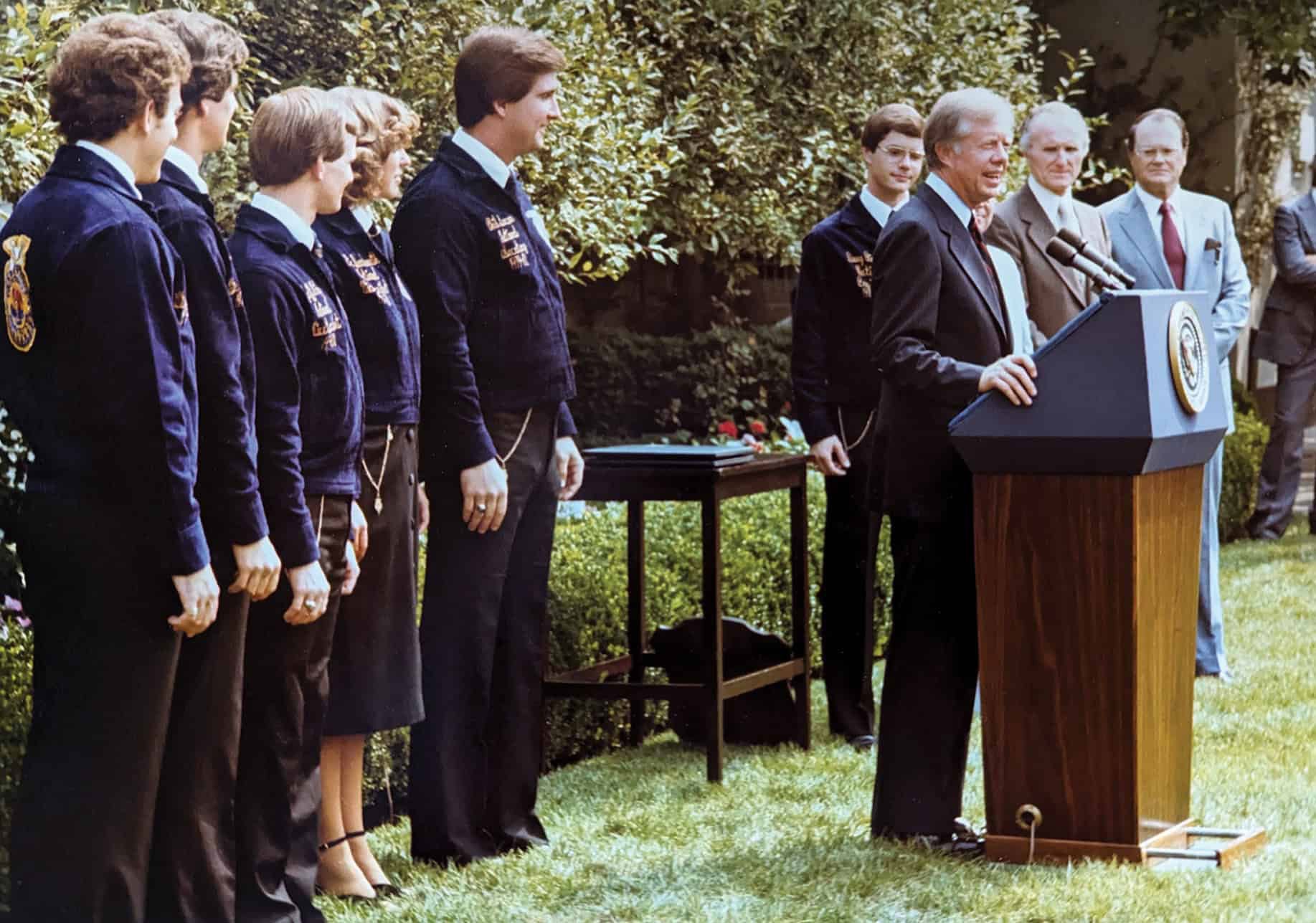As the only FFA member to become a president of the United States, Jimmy Carter’s legacy extends far beyond his political career into the world of agriculture education and leadership. America remembers him for not only his international work for human rights and peacekeeping, but also as an advocate for farmers and rural communities across the nation. As an FFA alumnus, Carter continually supported the National FFA Organization and agricultural education as a whole, leaving a lasting mark on the FFA and the future of farming in America.
Agriculture was a part of Carter’s life from the very beginning, as he was born in 1924 in the rural town of Plains, Georgia — which at the time had a population of about 450 residents and today has just 573. The son of a hardworking peanut farmer, when Carter was just 4 years old his family moved onto a 360-acre farm in the Archery community, where Carter first learned to love the land.
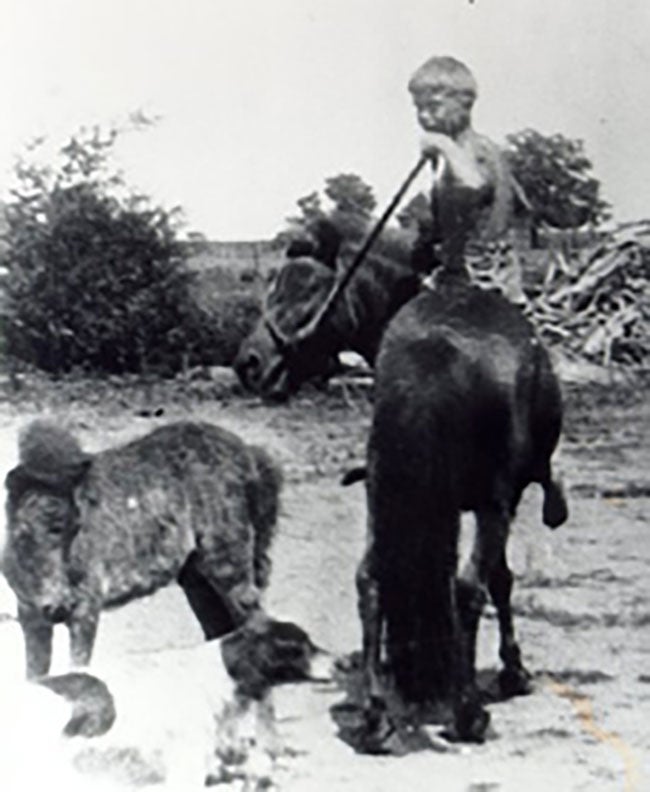
At the age of 5, he was already in the agriculture business industry, selling boiled peanuts from the farm on the streets of Plains. As Carter grew, so did his passion for agriculture, and in high school he joined the Future Farmers of America organization, later taking his first elected position as secretary of the Plains High School FFA Chapter.
“I can vouch for the fact that it’s good preparation for the highest elective office in the nation,” Carter later told a group of FFA state officers in 1979.
In addition to his own chores on the farm, which included mopping cotton, blacksmithing, and helping to care for the fields, gardens, and animals, Carter cared for calves and pigs as FFA projects.
According to Jennifer Hopkins, an Education Technician at the Jimmy Carter National Historical Park, the skills Carter learned during his time in FFA stayed with him for the rest of his life.
“He talked about showing beef and dairy cattle, hogs, learning about forestry, poultry, carpentry, blacksmithing, and furniture-making. Later in life he made a lot of his own furniture, so he definitely picked that up in his time at FFA here at Plains High School,” said Hopkins.
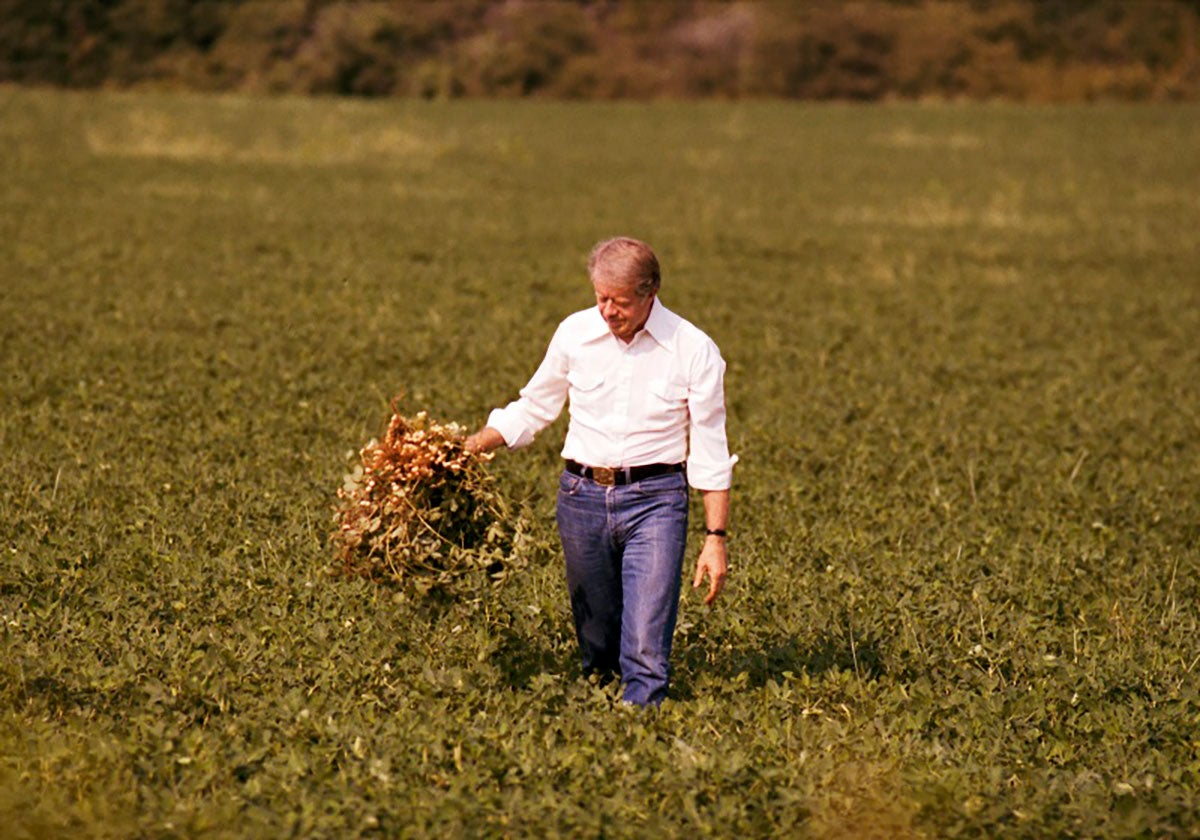
Carter’s speeches later revealed that FFA gave him not only hard skills but instead a combination of academic, practical, and professional experiences, applicable on the farm, classroom, or the Oval Office, where he served from 1977 to 1981.
“I learned how to judge a good hog or dairy cow. I learned to be a leader in a small group which was highly competitive. I learned how to make a speech. And I learned how to broaden my area of personal interest beyond the confines of my own family and my own farm and my own community,” Carter said in a speech to FFA state presidents in 1978.
After graduating from high school, Carter attended secondary school as well as the United States Naval Academy, going on to serve in the navy until 1953, when he returned to Georgia to take over the family farm. He quickly became active in the community and later state politics, eventually serving as governor of Georgia in 1970 before being elected in 1976 as the 39th president of the United States. Carter first addressed FFA members in 1975, just before becoming the Democratic Presidential Nominee, and later at the 48th and 51st National Conventions during his time in office.
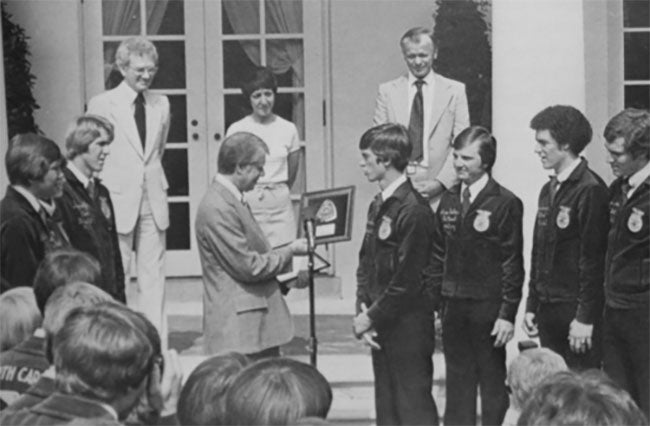
In 1977, Carter officially became a FFA Alumni Life Member during a ceremony at the White House, where state FFA officers presented him with a lifetime membership plague. The following years — in 1977, 1978, and 1979 — Carter spoke to state officers at the White House during the State Presidents Conference, encouraging and challenging them to make a difference in the future of agriculture.
“It’s no secret around the nation that the FFA organization, the Future Farmers of America, is one of my favorite organizations. I have spoken to local chapters; I’ve spoken to State groups; I’ve spoken to the national convention, as you well know. It’s been an integral part of my life,” Carter had said.
Even after his presidency, Carter continued to support and advise FFA members in a variety of ways, as well as crediting the organization for teaching him critical skills in both agriculture and leadership. In 2001, he published a memoir, An Hour Before Daylight: Memories of a Rural Boyhood, in which he fondly reflected on his experiences in the organization.
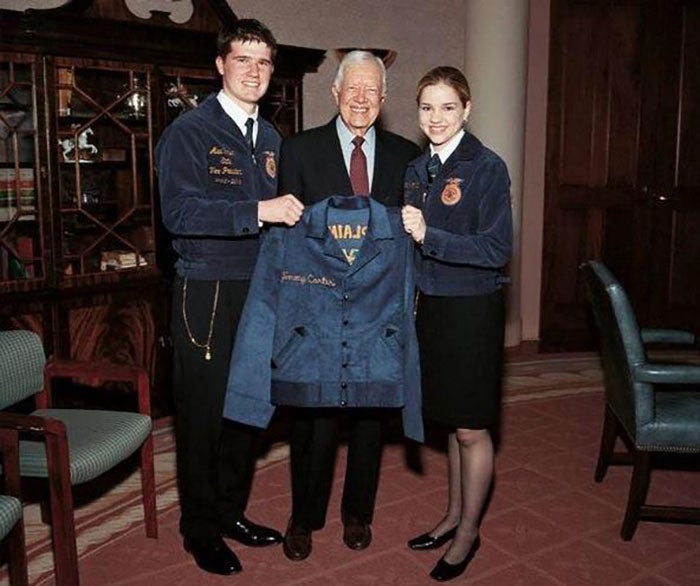
“The FFA was a tight knit organization at the school, state and national levels. We had competitions all the way up to public speaking, record keeping, the raising, showing, and judging of prime animals and other crafts important to a successful leader in agriculture,” wrote Carter.
In 2014, Carter recited the FFA Creed as a part of the National FFA Organization’s 85th Anniversary, also donating his FFA jacket to the Smithsonian’s National Museum of American History. Today, it stands as a representation of Jimmy Carter’s legacy and a reminder to members across the nation of the hard work, integrity, and qualities of leadership that an FFA member should possess.
Kate Walker is a student at Georgia College and State University. Originally from Watkinsville, Georgia, she has a passion for writing and all things agriculture.
